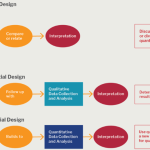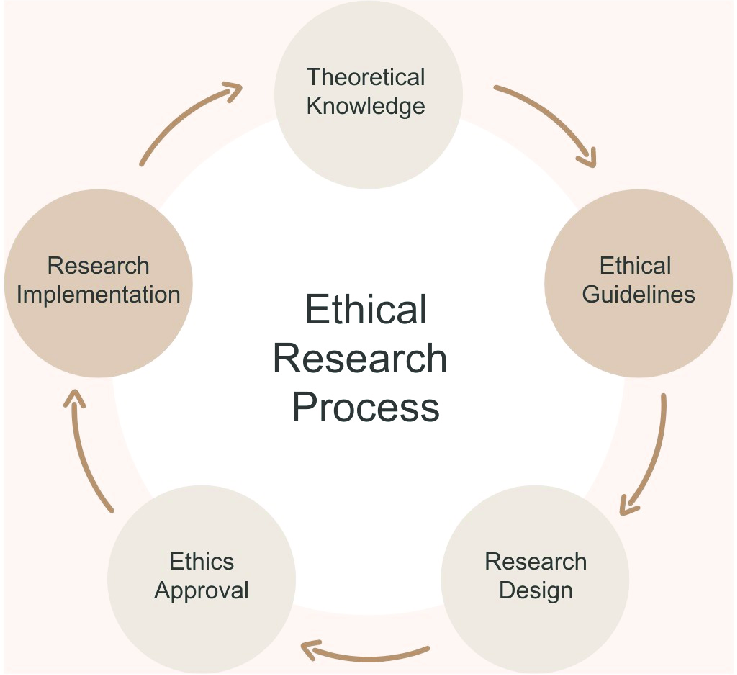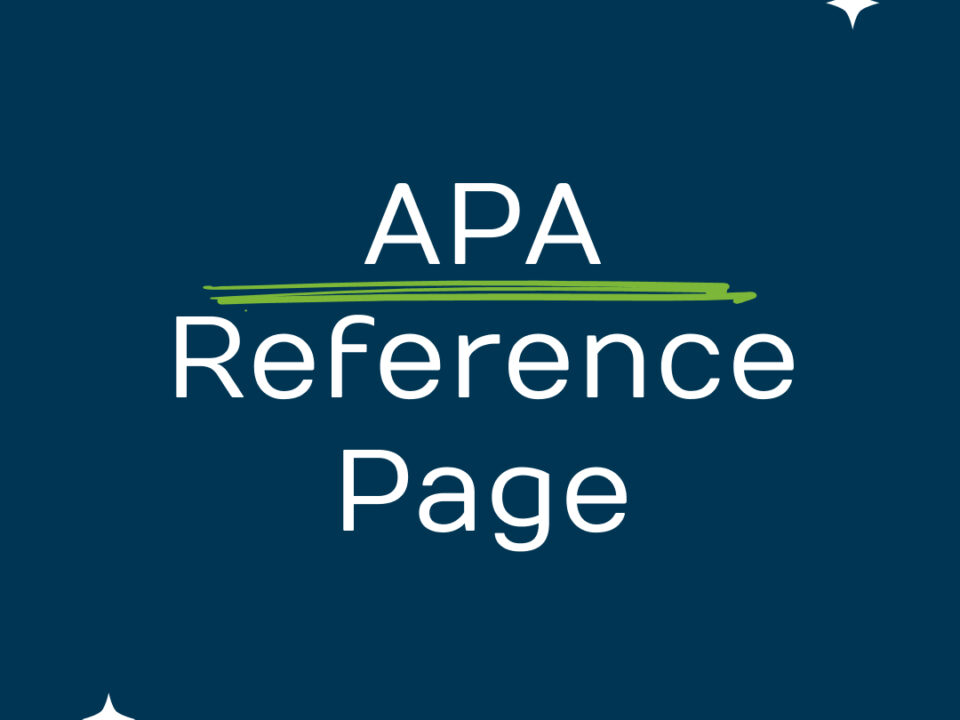
Exploring Qualitative vs. Quantitative Research: Choosing the Right Approach
December 26, 2024These five tips will help you do your research the right way
December 26, 2024Last updated on April 24th, 2025 at 07:37 pm
Navigating the Moral Maze: Ethical Considerations in Research Best Practices
In researchasist we discuss about”Ethical Considerations in Research”. In the fascinating world of research, where we constantly push boundaries of knowledge and understanding, it’s easy to get lost in the excitement of discovery. But hold on a second! Before we dive headfirst into data collection and analysis, there’s a crucial compass we need to calibrate: ethical considerations in research. Think of it as the bedrock upon which credible and impactful research is built. Without a strong ethical framework, even the most groundbreaking study can crumble under scrutiny.
This comprehensive guide will walk you through the essential ethical principles that should underpin every stage of your research journey. We’ll explore best practices, offer practical examples, and ensure you’re equipped to conduct research that is not only scientifically rigorous but also morally sound. Ready to navigate the moral maze of research with confidence and integrity? Let’s get started.
1. The Cornerstone: Understanding Ethical Principles in Research
At its heart, research ethics is about doing what is morally right and responsible in the pursuit of knowledge. It’s a set of principles that guide researchers in their interactions with participants, data, and the wider community (Beauchamp & Childress, 2019). These principles aren’t just abstract ideals; they are the practical tools that ensure research benefits society while minimizing harm.
Think about it like this: imagine you’re a chef experimenting with new flavors. You wouldn’t just throw ingredients together haphazardly, right? You’d consider food safety, allergies, and the overall impact on your diners. Similarly, in research, we must meticulously consider the potential impact of our work on everyone involved.
Key ethical principles include:
- Respect for Persons: Recognizing the autonomy and dignity of individuals, ensuring voluntary participation and informed consent (National Commission for the Protection of Human Subjects of Biomedical and Behavioral Research, 1979).
- Beneficence: Striving to maximize benefits and minimize risks to participants and society (Beauchamp & Childress, 2019).
- Justice: Ensuring fair and equitable selection of participants and distribution of research benefits and burdens (National Commission for the Protection of Human Subjects of Biomedical and Behavioral Research, 1979).
- Integrity: Maintaining honesty, transparency, and rigor in all aspects of the research process (Shamoo & Resnik, 2015).
These principles are not just checkboxes; they are living guidelines that should inform every decision you make, from formulating your research question to disseminating your findings.
2. Informed Consent: Empowering Participants Through Transparency
Imagine being asked to participate in a study without knowing what it’s about, what you’ll be asked to do, or how your information will be used. Uncomfortable, right? That’s why informed consent is paramount. It’s the process of providing potential participants with all the necessary information to make a voluntary and informed decision about whether to participate in research (World Medical Association, 2013).
What does truly informed consent look like in practice?
- Clear and Understandable Language: Avoid jargon and technical terms. Explain the research purpose, procedures, risks, and benefits in plain language that participants can easily grasp.
- Voluntary Participation: Emphasize that participation is entirely voluntary and participants have the right to withdraw at any time without penalty. No coercion or undue influence should be involved.
- Comprehensive Information: Provide details about data collection methods, confidentiality measures, data storage, and how results will be used and disseminated.
- Opportunity for Questions: Ensure participants have ample opportunity to ask questions and receive clear and satisfactory answers.
Personal Experience: Early in my research career, I was part of a study on stress levels in university students. We initially used a very technical consent form. However, after piloting it with students, we realized it was confusing and intimidating. We completely revised it, using simpler language and highlighting the benefits of participation, which significantly improved student understanding and willingness to participate. This experience taught me the vital importance of participant-centered consent processes.
3. Confidentiality and Anonymity: Safeguarding Participant Privacy
Trust is the bedrock of research, and protecting participant privacy is crucial for building and maintaining that trust. Confidentiality and anonymity are two key concepts in safeguarding privacy, though they are often confused (Hesse-Biber & Leavy, 2011).
- Confidentiality means that researchers know the identity of participants but promise not to disclose their personal information publicly. Data is kept private and shared only within the research team, and only for research purposes.
- Anonymity is a stronger form of privacy protection where researchers do not collect any identifying information from participants at all. In truly anonymous research, even the researchers cannot link responses to individuals.
Best practices for ensuring confidentiality and anonymity:
- De-identification: Remove or alter any identifying information from data, such as names, addresses, or unique identifiers.
- Secure Data Storage: Store data in password-protected and encrypted systems. Limit access to data to only authorized research team members.
- Aggregate Data Reporting: Report findings in aggregate form, so individual participants cannot be identified.
- Confidentiality Agreements: Have all research team members sign confidentiality agreements to reinforce their ethical obligations.
Expert Quote: Dr. Emily Carter, a leading bioethicist at the fictional “Institute for Ethical Research,” emphasizes, “Researchers must act as custodians of participant data. Robust confidentiality and anonymity measures are not just about compliance; they are about demonstrating profound respect for the individuals who contribute to our knowledge.”
4. Data Integrity and Rigor: Upholding the Honesty of Research
The credibility of research hinges on the integrity of the data and the rigor of the research process. Data integrity refers to the accuracy, consistency, and reliability of data throughout the research lifecycle. Research rigor encompasses the systematic and thorough approach to study design, data collection, analysis, and interpretation (National Institutes of Health, 2023).
How to ensure data integrity and rigor:
- Careful Data Collection: Use standardized and validated instruments, train data collectors thoroughly, and implement quality control procedures to minimize errors.
- Transparent Data Management: Document all data collection and processing steps clearly and systematically. Maintain detailed audit trails of data changes.
- Appropriate Statistical Analysis: Use appropriate statistical methods and software. Consult with a statistician if needed to ensure accurate analysis and interpretation.
- Avoid Data Fabrication and Falsification: Never invent data or manipulate data to fit desired outcomes. This is a serious breach of research ethics and scientific integrity (Fanelli, 2009).
Scientific Source: The “Reproducibility Project: Psychology” published in Science (Open Science Collaboration, 2015) highlighted the importance of research rigor by attempting to replicate 100 psychology studies. The findings underscored the need for greater transparency in methods and data to enhance the reliability and reproducibility of research findings.
5. Conflicts of Interest: Recognizing and Managing Bias
Researchers, like all individuals, can have competing interests that might potentially bias their research. A conflict of interest arises when a researcher’s personal, financial, or professional interests could unduly influence their research decisions or interpretations (Lo & Field, 2009).
Types of conflicts of interest in research:
- Financial Conflicts: Funding from industry sponsors, personal investments in companies related to the research topic, or consulting fees.
- Personal Conflicts: Personal relationships with research participants, collaborators, or individuals affected by the research outcomes.
- Professional Conflicts: Desire for career advancement, pressure to publish positive results, or allegiance to a particular theoretical perspective.
Best practices for managing conflicts of interest:
- Disclosure: Researchers should openly disclose any potential conflicts of interest to relevant parties, such as ethics review boards, funding agencies, and journal editors.
- Transparency: Be transparent about funding sources, affiliations, and any potential biases in research publications and presentations.
- Independent Review: In cases of significant conflicts, consider independent review of research protocols and findings to ensure objectivity.
- Recusal: In extreme cases, researchers may need to recuse themselves from certain aspects of the research process where conflicts are unavoidable.
6. Research with Vulnerable Populations: Extra Layers of Protection
Certain groups of individuals are considered vulnerable populations due to factors that may compromise their ability to make voluntary and informed decisions about research participation or increase their risk of harm. These populations require extra ethical safeguards (Wendler et al., 2012).
Examples of vulnerable populations:
- Children and minors
- Individuals with cognitive impairments
- Prisoners
- Pregnant women
- Economically disadvantaged individuals
- Individuals with serious health conditions
Enhanced ethical considerations for research with vulnerable populations:
- Additional Safeguards: Ethics review boards often require additional safeguards, such as parental consent for minors, independent advocates for individuals with cognitive impairments, and careful risk-benefit assessments.
- Sensitivity and Respect: Researchers must be particularly sensitive to the needs and vulnerabilities of these populations, ensuring respectful and culturally appropriate research approaches.
- Maximize Benefits, Minimize Risks: Strive to maximize potential benefits for vulnerable populations while rigorously minimizing any potential risks of harm or exploitation.
Practical Example: When conducting research with children, obtaining assent from the child (in addition to parental consent) is crucial. Assent means seeking the child’s agreement to participate in a way that is appropriate to their age and understanding. This respects their developing autonomy and ensures they are active participants in the decision-making process.
7. Authorship and Intellectual Property: Giving Credit Where Credit is Due
Research is a collaborative endeavor, and ethical authorship practices are essential for recognizing contributions fairly and maintaining the integrity of the scholarly record. Authorship determines who is credited for a research publication, while intellectual property concerns ownership and rights to research findings and innovations (Fine & Kurdek, 1993).
Ethical guidelines for authorship:
- Substantial Contributions: Authorship should be based on substantial contributions to the conception, design, data collection, analysis, or interpretation of the research (International Committee of Medical Journal Editors, 2023).
- Agreement on Authorship: Discuss and agree on authorship order and responsibilities early in the research process.
- Avoid Honorary Authorship: Do not include individuals as authors who have not made substantial contributions (e.g., “gift” or “guest” authorship).
- Acknowledge Contributors: Acknowledge individuals who have made significant contributions but do not meet authorship criteria in an acknowledgements section.
Intellectual property considerations:
- Ownership: Understand institutional policies and funding agreements regarding intellectual property rights to research findings.
- Data Sharing: Consider ethical and legal obligations related to data sharing and access, balancing openness with protection of participant privacy and intellectual property.
- Plagiarism: Always properly cite sources and avoid plagiarism, which is a serious ethical violation (Roig, 2010).
8. Ethical Review Boards (IRBs): Independent Oversight for Ethical Research
Ethical Review Boards (ERBs), often called Institutional Review Boards (IRBs) in the US, are committees established to review research proposals involving human participants to ensure they meet ethical standards. They act as independent gatekeepers, protecting the rights and welfare of research participants (U.S. Department of Health & Human Services, 2023).
The role of ERBs/IRBs:
- Review Research Protocols: ERBs/IRBs review research protocols to assess potential ethical risks and benefits.
- Ensure Informed Consent: They scrutinize informed consent procedures to ensure they are adequate and ethical.
- Monitor Ongoing Research: Some ERBs/IRBs monitor ongoing research to ensure continued ethical compliance.
- Provide Guidance and Education: ERBs/IRBs often provide guidance and education to researchers on ethical research practices.
Working effectively with ERBs/IRBs:
- Submit Clear and Comprehensive Protocols: Prepare detailed and well-organized research protocols that clearly address ethical considerations.
- Respond Promptly to Queries: Respond promptly and thoroughly to any questions or requests for revisions from the ERB/IRB.
- Respect ERB/IRB Decisions: Respect the decisions of the ERB/IRB and make necessary modifications to research protocols as required.
Scientific Source: The Belmont Report (1979) (National Commission for the Protection of Human Subjects of Biomedical and Behavioral Research, 1979), a landmark document in research ethics in the United States, laid the foundation for modern ERB/IRB practices by outlining the core ethical principles of respect for persons, beneficence, and justice, which guide ethical review of research involving human subjects.
9. Addressing Ethical Breaches: Responsibility and Accountability
Despite best efforts, ethical breaches can sometimes occur in research. It’s crucial to have mechanisms in place to address these breaches responsibly and promote accountability.
Types of ethical breaches in research:
- Violation of Confidentiality: Unauthorized disclosure of participant information.
- Lack of Informed Consent: Failure to obtain proper informed consent.
- Data Fabrication or Falsification: Making up or manipulating data.
- Plagiarism: Presenting someone else’s work as your own.
- Conflicts of Interest Not Disclosed: Failure to disclose relevant conflicts of interest.
Responding to ethical breaches:
- Reporting Mechanisms: Institutions should have clear reporting mechanisms for individuals to report suspected ethical breaches.
- Investigation and Review: Ethical breaches should be investigated thoroughly and impartially.
- Corrective Actions: Appropriate corrective actions should be taken, which may include retraining, sanctions, retraction of publications, or other disciplinary measures.
- Transparency and Learning: Lessons learned from ethical breaches should be used to improve ethical research practices and prevent future occurrences.
10. Continuous Learning and Ethical Reflection: A Lifelong Journey
Ethical considerations in research are not static; they evolve with societal values, technological advancements, and new research methodologies. Engaging in continuous learning and ethical reflection is essential for researchers throughout their careers.
Strategies for continuous ethical development:
- Ethics Training: Participate in regular ethics training workshops and courses.
- Professional Development: Stay updated on ethical guidelines and best practices in your field.
- Ethical Case Discussions: Engage in ethical case discussions with colleagues to learn from diverse perspectives and experiences.
- Self-Reflection: Regularly reflect on your own ethical values and how they inform your research decisions.
- Seek Guidance: Don’t hesitate to seek guidance from mentors, ethics experts, or ERBs/IRBs when facing ethical dilemmas.
Expert Quote: Professor Anya Sharma, a renowned researcher in social sciences, wisely states, “Ethical research is not a destination, but a continuous journey of learning, reflection, and adaptation. Embracing this journey with humility and a commitment to ethical principles is what defines truly impactful and responsible research.”
In Conclusion:
Navigating ethical considerations in research is not merely a hurdle to overcome, but rather an integral and ongoing process that shapes the very fabric of credible and impactful scholarship. From understanding the foundational ethical principles to diligently implementing best practices in informed consent, data management, and conflict of interest management, every step of the research journey demands careful ethical deliberation. We’ve explored the importance of safeguarding participant privacy through confidentiality and anonymity, upholding data integrity and rigor, and providing extra layers of protection for vulnerable populations. We’ve also highlighted the critical roles of Ethical Review Boards in providing independent oversight and the necessity of addressing ethical breaches with responsibility and accountability.
Remember, ethical research is not a static checklist, but a dynamic and evolving commitment. It requires continuous learning, critical self-reflection, and open dialogue within the research community. By embracing these principles and practices, we not only ensure the well-being and rights of research participants but also fortify the trustworthiness and societal value of research itself.
Take this knowledge and actively integrate ethical considerations into every aspect of your research endeavors. Engage in ongoing learning about research ethics, participate in ethical discussions with your peers, and always prioritize ethical principles in your decision-making. Let us collectively strive to conduct research that is not only scientifically sound but also deeply ethical, contributing to a world where knowledge is pursued with integrity, respect, and a profound commitment to the greater good. By making ethical considerations a cornerstone of our research, we pave the way for discoveries that truly benefit humanity and stand the test of time.
References
Beauchamp, T. L., & Childress, J. F. (2019). Principles of biomedical ethics (8th ed.). Oxford University Press.
Fanelli, D. (2009). How many scientists fabricate and falsify research? A systematic review and meta-analysis of survey data. PloS ONE, 4(5), e5738.
Fine, M. A., & Kurdek, L. A. (1993). Reflections on determining authorship credit and authorship order on manuscripts. Journal of Social and Clinical Psychology, 12(2), 241-248.
Hesse-Biber, S. N., & Leavy, P. (2011). The practice of qualitative research (2nd ed.). Sage Publications.
International Committee of Medical Journal Editors. (2023). Recommendations for the conduct, reporting, editing, and publication of scholarly work in medical journals. Authorship and contributorship. Retrieved from http://www.icmje.org/recommendations/browse/roles-and


